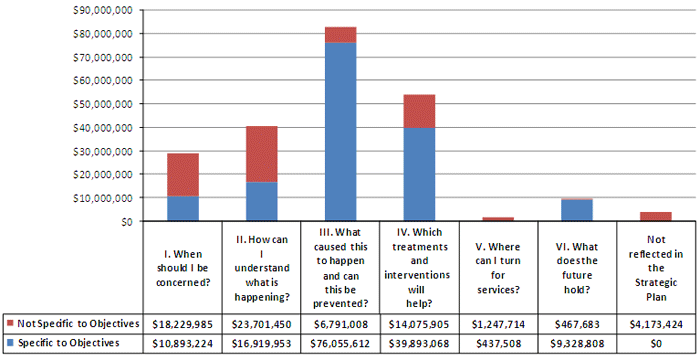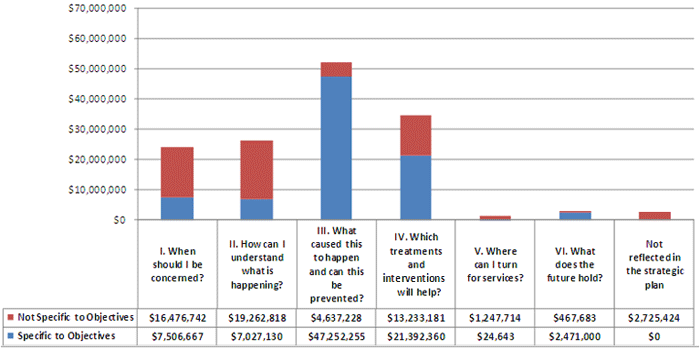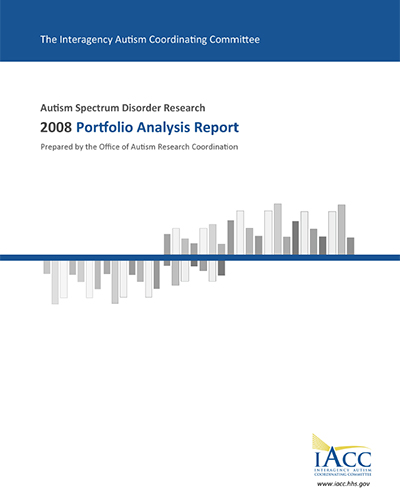Portfolio Analysis Report
IACC Autism Spectrum Disorder Research
2008
After assessing the distribution of research funding across the Strategic Plan questions, the IACC analyzed how well the 2008 research addressed the specific goals outlined in the Plan's 40 research objectives. Each question in the Plan has several long and short-term objectives calling for specific research projects with a goal date and an estimate of the budget required to accomplish the goal. For example, the first objective in Question 1: "When Should I Be Concerned?" calls for the development of "at least one efficient diagnostic instrument that is valid in diverse populations for use in large-scale studies by 2011," with a recommended budget of $5,300,000 over two years.
Figure 3 illustrates how much of the 2008 funding addresses specific objectives in the Plan. Each Plan question is represented by a bar; the blue portion illustrates the amount of funding within the question that went towards research aligned with one of the objectives. The red portion represents research that relates to the topic area of the question (e.g., diagnosis, biology, risk factors, etc.), but is not specific to any of the objectives. As an example, a research project studying how children with ASD process the visual information that accompanies speech has implications for diagnosis, however it does not relate to a specific objective in Question 1. This would be classified as Question 1 research "not specific to objectives."
2008 ASD Research Funding by Strategic Plan Question: Specific versus Not Specific to Research Objectives

Figure 3. The bar chart shows the amount of ASD funding that aligned with objectives in the Strategic Plan. The blue sections represent research that fulfilled Plan objectives, while the red sections represent research within the question topic area that fell outside the specific projects called for in the objectives. Research related to Questions 3 and 6 – risk factors and lifespan issues – had the highest proportion of projects that aligned with objectives.
Of the six questions, Question 4 – which relates to issues over the lifespan – had the largest proportion of research aligned with an objective (95% of the total $9.8 million in funding). This was followed by Question 3 on risk factors, with 92% of the $82.8 million in research corresponding to an objective. Conversely, more than half of the funding devoted to Question 1: "When Should I Be Concerned?" and Question 2: "How Can I Understand What is Happening?" was for projects outside the focus of the objectives.
When examining only Federal funding, the distribution of objective-specific research is strikingly similar to that of the combined Federal and private funding (Figure 4). The vast majority of research related to Questions 3 and 6 is specific to Plan objectives, while Questions 1 and 2 show the opposite pattern.
2008 Federal Funding of ASD Research by Strategic Plan Question: Specific versus Not Specific to Research Objectives

Figure 4. Federal funding of ASD research in 2008 showed a similar pattern to overall funding – research related to risk factors and lifespan issues most closely aligned with the Plan objectives, while more than half of the research related to diagnosis and biology did not align with stated objectives.




